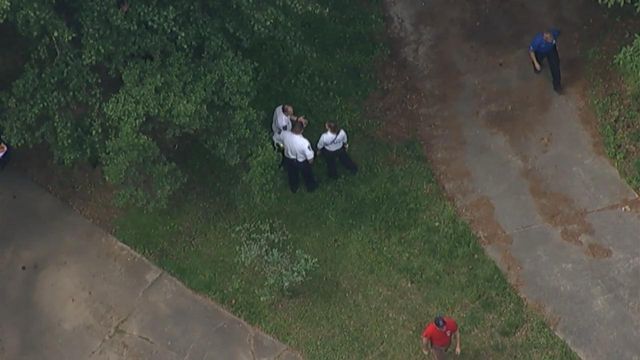New $8 million program seeks to boost emergency placements for NC kids

State health leaders are hoping to get foster kids out of DSS offices and into temporary emergency placements more quickly through a new $8 million pilot program.
In its announcement of the "Emergency Placement Fund" Friday, the NC Dept. of Health and Human Services noted that an average of 32 children per week are living in their local social services offices because there is no appropriate emergency placement available for them. The goal of the program is to supply each county with a little bit of extra money to find other solutions.
Adrian Daye, deputy director for state social services, says many of these children have complex behavioral health needs, and some have complex medical needs as well. An office is not a welcoming place for them to stay. Most county offices don't have beds, showers or kitchens, and they don't have the structure in place to administer medication.
"These children have already been traumatized just by removal and whatever abuse or neglect they may have experienced," Daye told WRAL News. "Being in the office is not where they should be."
Daye said it's hard on local social workers, too, since two adults have to stay with the child at all times.
Deputy DHHS Secretary Susan Osborne, who oversees most social services programs, says the grants will total nearly $8 million statewide between now and June 30, 2025.
The money is coming from the $1.6 billion federal bonus payment North Carolina received for expanding Medicaid last December. Roughly half of that money went to behavioral health needs. $80 million of that was earmarked by state lawmakers for Child and Family Wellbeing.
Each county gets at least $20,000, and counties with a larger percentage of DSS placements get proportionally more.
The counties receiving the largest grants in central North Carolina are Cumberland at $251,000 and Wake at $235,000, Robeson County will receive $213,000, Durham will receive $155,000, and Johnston will get $120,000.
Daye says one way the counties can use the money is to contract with foster families with the appropriate level of training to be "on call" to take in temporary emergency placements as needed. One county is already doing this, she said, and it's worked well.
Another option, already in use in Virginia, is an "exceptional circumstances program." Counties could use their money to pay foster families more to take on children with complex behavioral health needs.
"It may be that they require additional supervision or other things," Daye said.
Osborne emphasized that counties are also welcome to come up with other solutions that best fit their local community resources, but those will need approval from the state.











